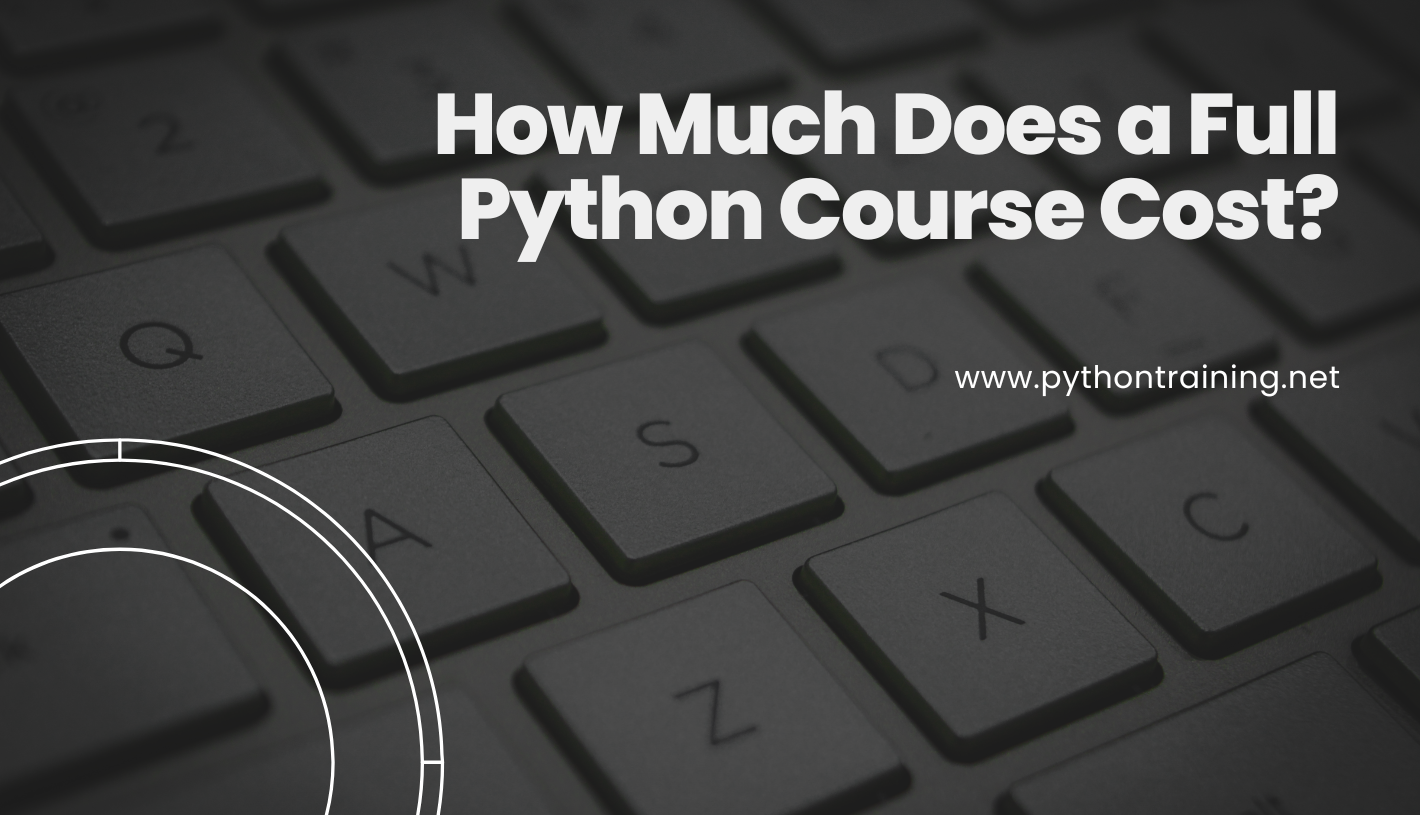How Much Does a Full Python Course Cost?
. Introduction
Python has gained immense popularity as a versatile programming language used in various domains such as web development, data analysis, artificial intelligence, and automation. If you’re interested in learning Python, you might be wondering about how much does a full Python Course cost and the cost associated with acquiring the necessary knowledge and skills. In this article, we will explore the factors that affect the cost of Python courses and provide insights into the average pricing.
2. Benefits of Learning Python
Before diving into the cost details, let’s briefly discuss the benefits of learning Python. Python offers numerous advantages, including:
- Versatility: Python can be used for web development, scientific computing, data analysis, machine learning, and more.
- Readability: Python’s syntax is designed to be readable and intuitive, making it easier for beginners to understand.
- Large Community: Python has a vast and supportive community that offers resources, libraries, and frameworks to aid developers.
- Career Opportunities: Python skills are highly sought after in the job market, with a wide range of career opportunities available.
3. Types of Python Courses
When it comes to learning Python, you have two primary options: online courses and in-person courses. Let’s explore each of these options in detail.
3.1 Online Courses
Online Python courses provide flexibility and convenience. They allow you to learn at your own pace from anywhere with an internet connection. Many reputable e-learning platforms offer Python courses, often including video lectures, interactive exercises, quizzes, and project work.
3.2 In-Person Courses
In-person Python courses are conducted in a traditional classroom setting. These courses provide a structured learning environment with face-to-face interactions with instructors and fellow students. In-person courses may be suitable for individuals who prefer a more hands-on approach to learning.
4. Factors Affecting the Cost of Python Courses
Several factors influence the cost of Python courses. Understanding these factors will help you make an informed decision while considering your budget and learning preferences.
4.1 Course Format and Duration
The course format and duration can impact the cost. Comprehensive and longer courses tend to be more expensive than shorter ones. Additionally, courses that offer certifications or degrees might have higher costs due to their extended curriculum.
4.2 Course Provider Reputation
The reputation and expertise of the course provider can affect the pricing. Established educational institutions, renowned coding bootcamps, and industry experts often charge higher fees for their Python courses.
4.3 Course Content and Curriculum
Courses with extensive content and a comprehensive curriculum are typically priced higher. Consider the depth of topics covered, practical exercises, real-world projects, and the inclusion of advanced Python concepts when evaluating the course’s value for the cost.
4.4 Additional Learning Resources
Some Python courses offer additional learning resources such as coding exercises, practice tests, online forums, and access to exclusive communities. These resources can enhance your learning experience but may also contribute to the overall cost.
5. Average Cost of Python Courses
The cost of Python courses can vary significantly depending on the factors mentioned earlier. On average, online Python courses can range from $50 to $500, while in-person courses may cost anywhere from $500 to $5,000 or more. Keep in mind that these are approximate figures, and the prices can vary based on the course provider, geographic location, and course duration.
6. Ways to Save Money on Python Courses
If you’re looking to save money while learning Python, consider the following tips:
- Free Online Resources: Utilize free online resources such as tutorials, documentation, and Python learning platforms like Codecademy, Coursera, or edX.
- Open-Source Course Materials: Some educational institutions and organizations release their Python course materials under open-source licenses. You can access these materials for self-study without incurring any additional costs.
- Scholarships and Discounts: Keep an eye out for scholarships, discounts, or promotional offers provided by course providers. They can significantly reduce the overall cost of the course.
- Group or Bundle Discounts: Some course providers offer discounts for group enrollments or bundle deals where you can access multiple courses at a discounted rate.
Remember to weigh the cost savings against the quality and comprehensiveness of the course. Investing in a well-structured and reputable course may provide better long-term value for your learning journey.
7. Conclusion
Learning Python opens up a world of opportunities in various industries, but the cost of Python courses can vary based on several factors. Consider your learning preferences, budget, and the value offered by the course when making a decision. Whether you choose an online course or an in-person one, the investment in acquiring Python skills can be highly rewarding.
Frequently Asked Questions (FAQs)
- How long does it take to complete a full Python course?
Ans- The duration of a Python course varies based on its depth and intensity. On average, it can take anywhere from a few weeks to several months to complete a comprehensive course.
- Can I learn Python for free?
Ans- Yes, there are numerous free online resources available for learning Python. You can access tutorials, documentation, and interactive platforms that offer introductory Python courses at no cost.
- Are there any prerequisites for learning Python?
Ans- Python is beginner-friendly, and no specific prerequisites are required. However, basic programming concepts and familiarity with computer systems can be helpful.
- What are the career prospects after completing a Python course?
Ans- Python skills open doors to various career opportunities, including software development, data analysis, machine learning, web development, and automation. The demand for Python developers continues to grow across industries.
- How can I choose the right Python course for my needs?
Ans- When choosing a Python course, consider factors such as the course content, curriculum, instructor expertise, learning format, and cost. Assess your learning goals and match them with the course that best aligns with your requirements.
